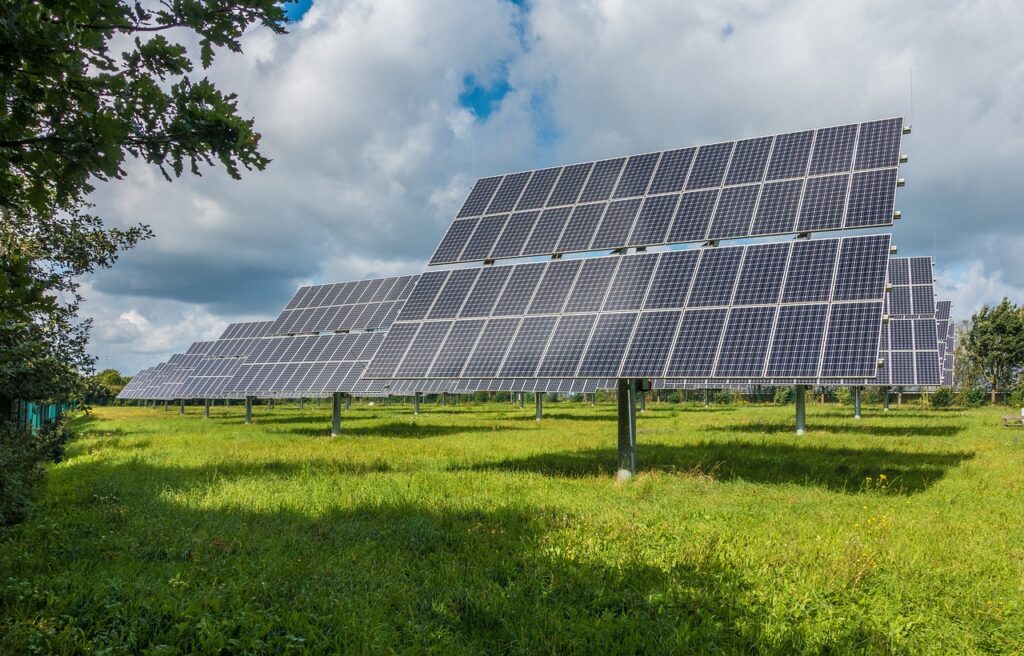 (888) 895-1776
(888) 895-1776
 CB Frey
CB Frey  May 9, 2024
May 9, 2024  0 Comment
0 Comment 
How will I receive payment for renting out my land for solar panels?
There are a few different ways to receive rent payments when you lease your land for solar energy projects. Deal terms may vary depending on your location. Developers for Utility Scale Solar Farms pay around $10-$40 per acre per year for a 1–5 year option to lease. If the developer decides to exercise their option to enter a formal lease, the rent payments can range from $400-$2,000 per acre per year for 35-40 years! New solar leases usually include an inflation escalator which increases at the rate of 2-3% annually.
Solar lease payments are usually paid on a per acre, per year basis and generally do not pay royalties. The developer can negotiate with you to find something that works.
You can either choose to collect rent payments over the 35-40 year lease term or do a solar lease buyout with Renewable Land. Under a solar lease buyout, you receive tax-advantaged money upfront for your solar lease.
What is a solar lease option?
A developer will offer a solar lease option which grants them exclusive rights for 2-6 years to enter into a formal lease agreement. The solar developer evaluates the land’s suitability for solar leasing and works to obtain the proper permits to commence construction. If you sign a solar lease option, the contract does not guarantee that the solar developer will move forward with construction.
What is a fixed annual payment in a solar lease agreement?
A fixed annual payment for a solar lease is the amount of money that is paid to you annually to lease your solar rights. The amount and length are pre-negotiated between you and the developer. The length of the lease usually ranges between 20-35 years, with options to extend the lease for an additional 10-15 years.
What is a Power Purchase Agreement?
A Power Purchase Agreement (PPA) is a long-term contract between the solar farm and an entity that buys the power from the project, called an offtaker. Offtakers include utilities and large corporations, like Microsoft or Amazon. These contracts are often 15 – 20 years long. Power purchase agreements are often necessary to secure project financing to build the project.
If electricity prices increase, am I compensated more in my solar lease contract?
The developer will sign a power purchase agreement between the solar farm and offtaker (the company/utility buying the energy). The landowner typically does not benefit from higher future electricity prices. As an alternative, most solar farm lease agreements provide an annual escalator between 1-3%. An additional benefit of the fixed annual rental payment is that the payments do not decrease if electricity prices go down.
Do I have to pay property taxes if my property is developed as a solar farm?
The solar farm lease agreement usually provides that the project is responsible for all, or most of the taxes assessed on the developed lands. The most desirable structure is a triple-net lease. This means the project pays all the taxes on the land encumbered by the project. You are responsible for property taxes on your portion of the farm that is not developed for a solar farm.
Can I sell my solar rent payments?
Landowners receiving payments for their solar lease can sell those future payments. Landowners have the option to sell their entire property or just the lease payments. Selling your solar lease often has tax benefits as the proceeds are capital gains and you can enter a 1031 transaction to defer all taxes.
Please reach out to us at Renewable Land if you have been approached about leasing your property to a solar farm and have questions, or if you are interested in a solar lease buyout.
Contact Us
*Nothing in this blog is intended to be legal or financial guidance. Anyone seeking legal or financial guidance should consult a licensed attorney or accountant.*